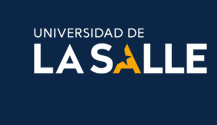Resumen
El presente escrito pretende aportar desde la perspectiva constructivista al debate sobre la integración de los denominados métodos cuantitativo y cualitativo en la investigación social, dada la complementariedad recíproca que existe entre ellos para abordar integralmente el objeto de estudio, así como por la implicación ontológica que el observador tiene en la construcción de la realidad que describe, comprende y explica. Aporta también, elementos básicos de cuatro paradigmas que contribuyen a fundamentar la perspectiva constructivista: la teoría sistémica, la realidad como construcción en el vivir, la mirada sobre la vida cotidiana como el escenario privilegiado de lo social y la asunción del lenguaje en su carácter generativo.
Palabras clave
constructivismo, ontología, vida cotidiana, sistemas, lenguaje
Abstract
From a constructivist perspective, this article intents to contribute to the debate: Integration of the called Quantitative and Qualitative Methods used in Social Research. Due to the mutual complementary of both methods, it deals with, not only the integral object of the study but also the ontological implication which the observer has when constructing the reality he describes, understands and explains. He also contributes with the basic elements of four paradigms which help to support the constructivist perspective: the systemic theory, the reality as construction in the way of life, the observation of the daily life as the privilege of the social scenery and finally the assumption of the language with generative character.
Keywords
constructivism, ontology, daily life, systems, language
Fecha de recepción
15 de septiembre de 2015
Fecha de aceptación
2 de octubre de 2005
Fecha de publicación
2005-10-01
Licencia Creative Commons

This work is licensed under a Creative Commons Attribution-Noncommercial-No Derivative Works 4.0 License.
Tipo de documento
Artículo de investigación
Editorial
Universidad de La Salle. Ediciones Unisalle
Citación recomendada
Pérez Pérez, Teodoro
(2005)
"La perspectiva constructivista en la investigación social,"
Tendencias y Retos:
No.
10
, Article 4.
Disponible en:


